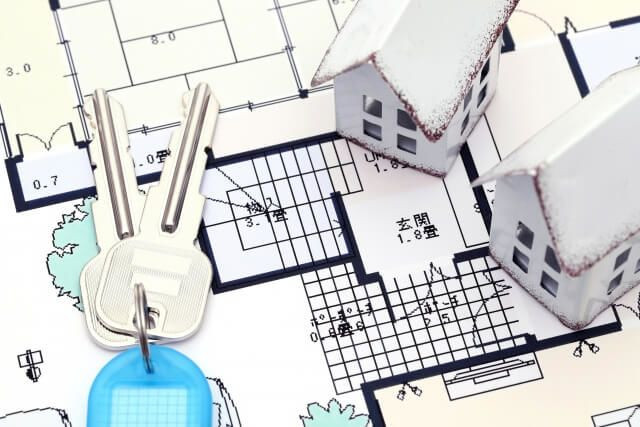The cultural and natural wonders in Japan is not limited to the country’s megacities. To this day, many people still prefer to live a peaceful life in the countryside. Referred to as inaka, rural Japan offers many wonders that will give a lasting experience, especially for residents, but also for visitors.
First Published: 2022/11/02
Updated: 2023/12/06
Table of Contents
- Defining Inaka and What to Expect There
- The Practical Perks of Living in Inaka
- Some Things to Remember About Inaka Life
- To Close
Defining Inaka and What to Expect There

Inaka means countryside, or anything that is outside of Tokyo and other big cities in Japan. The word generally applies to any area of the 47 prefectures in Japan that offers residents and visitors serene living in a rural setting. While inaka can have a very broad definition depending on who you ask - some may imagine rice paddies as inaka, while others imagine mountains, or even somewhere that doesn't have buildings taller than 2 floors - there are many common experiences to be shared by those who reside outside of cities.
So what makes inaka unique? Here are some examples and common reactions to such traits by foreign nationals who live there:
Very Few English Speakers / Foreign Nationals
Most inaka residents do not speak English, although they may sometimes get the meaning of what you say at times. As a foreign national, you may feel lost and lonely. What to do? Well, besides hiring an interpreter, which is rather out of the question for most people, the only other option is to learn the language. But the plus side is that living in the inaka offers the opportunity to learn Japanese faster, as you will literally be forced to listen, understand and speak to communicate. (You will also be asked by many people to teach them English, or at least be their practice partner!)
Constant Attention
You will be constantly observed and talked about by your neighbors – and that does not refer to just the immediate people living around you but also to many others who live down the road, across town and, perhaps, even their relatives in other prefectures. While it may make you feel quite flattered or perhaps uncomfortable at times, it does have its perks. You may wake up to milk, fruits, veggies and other gifts at your doorstep.
Friendly People
People are generally warmer and friendlier, although they may impose on your privacy without an announcement. This all comes from hospitable nature but also simply a keen interest in new people - especially from other countries. It may be easier to make friends than in the city!
Less to Do (Seemingly)
Unless you have a job in the city where you commute regularly or opportunities to travel there often, living in the inaka full-time can be a bit challenging as there may not be much going on, except the occasional feasts and local festivals. Doing what people do there, like planting veggies or raising animals, might be a good option; otherwise, pick up a skill like photography, painting, making pottery, - or even better, a traditional Japanese sport or art - etc. as a hobby or craft.
There will probably be less options to go out for a meal - which means either cooking or exploring the menu over frequent visits of select places. In very rural areas, some restaurants are simply built at the front of a home, which may include a bed-and-breakfast that is incorporated with the living space of the family running the business. This means you might need to do some exploring to figure out the different features of the town as things may not be as they seem!
And Of Course, Nature!
While Tokyo and the crowded cities may offer a vibrant milieu for modern Japanese culture and life, the inaka serves a more slow-paced and refreshing experience. The green landscapes, flowers, spacious roads, and pollution-free environment allows one to appreciate the nature found all around, especially if you can find landmarks, parks, foliage, etc. only found in that prefecture or region.
Although the things we have described may not suit many people’s idea of a "much-needed Japan adventure", or is perhaps only considered a weekend "getaway" for city-dwellers, the inaka is a constant way of life and does appeal to those who want cultural immersion away from the city.
On the other hand, accessibility to natural locations such as the sea, mountains, forests, hot springs etc. tend to be much closer, and residents definitely take advantage of that in all seasons!
Writer's Pick
The Practical Perks of Living in Inaka
The cost of living in inaka compared to that in Tokyo or Osaka is much cheaper by far, even half of the average big-city figures. That advantage alone may convince those who want to avoid the financial burdens common in city-living.
For those having children to raise, sending them to daycare centers, preschools or kindergarten have lower fees than most major cities. Some programs even allow single parents to waive the fee altogether. Raising children in the countryside has perks as well, including everyone in the neighborhood knowing and looking out for the child.
House rentals are also much lower in inaka as opposed to the sprawling metros. For example, foreign students can pay less on monthly rentals for a spacious flat while a comparable room in a university in Tokyo can go as high as ¥60,000 per month.
※ Times Higher Education - World University Rankings, "The cost of studying at a university in Japan"
On the other hand, groceries are, more or less, the same wherever you go in Japan. Nevertheless, the savings one gets from other vital expenses can go a long way for those trying to adjust in the new environment. Plus you can get local produce, fresher and in larger amounts, than you could in the city, and most likely for cheaper as well!
And you'll save even more money by cooking at home!
Some Things to Remember About Inaka Life

All the above inaka features can be found even within a train-ride from the big cities such as Tokyo; hence, if you feel you have the need to return to the city and experience the hustle and bustle there, the option is available although it may take a while (and may be expensive). There are also some parts of Japan that provide a good balance of the benefits of inaka and a city.

For example, Kumamoto City in Kyushu prefecture is rich with nature and people are friendly and welcoming there. At the same time, central Kumamoto City is well-equipped with public transportation and a downtown area with ample facilities for shopping, dining, and leisure. It can only be said to be the perfect balance of an inaka and city, which is why many foreign nationals have made it their second home in Japan. Read about their experience living in Kumamoto here.
Many who have chosen to stay in the inaka often find it no longer appealing to visit the city and its high-cost, as well as the stress and pollution. The slow-paced, nature-surrounded lifestyle the inaka offers foreign nationals an experience unlike any other. For one thing, the people and their traditions allow opportunities to learn about a new culture and integrate with the locals’ way of life. It may take a good amount of time absorbing the cultural shock as well as transforming some of one’s expectations and sensibilities, and that's okay! After all, even Japanese city residents experience shock when visiting rural areas, and vice versa.
However, it's good to remember that as a new person in the community, one cannot impose one’s way or beliefs onto others; otherwise, you will have as much difficulty adjusting to the place as the people will have to adjusting to the newcomer. But it's good to find opportunities to teach other cultural differences when they arise.
In terms of language, one of the major challenges is not finding anyone else who speaks English fluently in the inaka. The use of technology can help ease that concern through translation apps, but again, that will only take you so far. The best strategies are to learn as much Japanese before going there and to be attentive to the common local phrases and terminology in order to make your transition less difficult and to find places where signals are more accessible. Also, depending on where you are, inaka speak may be different than the standard Japanese you studied, especially with regional dialects. Once you become accustomed to it, though, it adds to the charm of your inaka experience.
To Close

Not all inaka experiences will be the same. You might find yourself in a seaside inaka village where the fish used in local dishes is as fresh as the air and scenery of the location. But another inaka location’s specialty may be its vegetables taken from the mountains and fields and other locally grown produce. In short, one has to experience or taste life in a specific place to appreciate and discover what it has to offer. Just looking at photos or videos of inaka is not enough to capture what it is like. Nevertheless, we hope this short article will encourage many to seriously consider it for a worthwhile and pleasurable life-change.




































